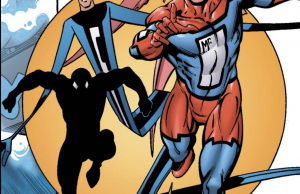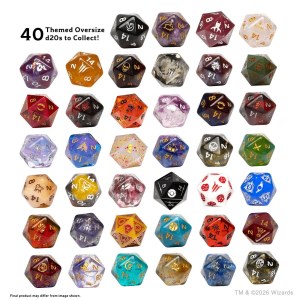
When the seventh Mission: Impossible film arrives on Paramount+ next week, its title will appear different from what moviegoers saw on the big screen. The notoriously long-winded Mission: Impossible – Dead Reckoning Part One is now simply Mission: Impossible – Dead Reckoning. The title adjustment is occurring despite the fact that this film ends on a cliffhanger. After nearly three hours of adventuring, Tom Cruise’s Ethan Hunt must now find a sunken submarine without the aid of computers or A.I.-influenced technology—which is to say he’ll probably be using the old school maritime navigational method known as “dead reckoning.”
It’s an interesting pivot for the franchise, but an obviously useful one. Despite some critics, including our own Don Kaye, adoring Dead Reckoning this past summer, the allegedly penultimate film in the M:I franchise was a box office disappointment, grossing only $568 million globally, down 29 percent from 2018’s Mission: Impossible – Fallout in spite of five years’ worth of inflation and the universal praise of Top Gun: Maverick received the year before. Of course there is one major factor that likely influenced Dead Reckoning’s commercial woes: Barbenheimer.
Released only one week after Mission: Impossible – Dead Reckoning Part One, the one-two cultural punch of Greta Gerwig’s Barbie and Christopher Nolan’s Oppenheimer grabbed the attention of audiences who wanted to see one or both of those films. And when tickets are priced at as much as $20 in major American cities, this left a lack of interest for the seventh film in a nearly 30-year-old franchise… especially as it was sold as only “part one” of a story that would not end for another year.
In many ways this is shame, because unlike this summer’s other big cliffhanger films—the equally disappointing commercial performance of Fast X and the more robust and celebrated Spider-Man: Across the Spider-Verse—Dead Reckoning: Part One took great pains to tell complete character arcs and stories for its core characters, even if the overarching plot of secret agents against a godlike A.I. is left unresolved. The mission may not be over, but the journey of Hayley Atwell’s Grace from selfish thief to altruistic IMF recruit is complete, and (for now) Ethan has reached a detente with his government pursuer (Shea Whigham).
But if you didn’t see the movie this past July, such narrative tidiness matters little to the financial interests of Cruise and Paramount. Indeed, even before the title change of the new movie, the studio recently confirmed that the film it set-up would no longer be titled Mission: Impossible – Dead Reckoning Part Two. That sequel was also further delayed from summer 2024 to summer 2025 due to production delays following last year’s writers and actors guilds strikes.
Even if there wasn’t an extra yearlong gap between pictures though, Paramount would have likely felt compelled to change the title to the eighth M:I flick. If audiences skipped “part one”partially because they may not have wanted to see an incomplete story, then why would they pay to see “part two” in theaters?
The shrewd business logic of this also signals an industry again at an inflection point and in need of a pivot. For most of the 21st century, the one reliable thing in Hollywood was franchises: unending sequels and continuations that always set up the next one. Twenty years ago, it was considered a risk for New Line Cinema and Peter Jackson to film all three Lord of the Rings concurrently. A few years later, it was a selling point when Gore Verbinski and Disney turned the standalone Pirates of the Caribbean movie into a trilogy. The sequels were heavily advertised as a two-parter, complete with a promised cliffhanger. The success of Marvel Studios ushered in the modern age of shared universe interconnectivity thinking, and soon enough it was considered good business to split whole books into two-part films, with Harry Potter and the Deathly Hallows: Part 1 and Part 2 each consecutively marking the series’ biggest opening weekend.
Yet 2023 just sugged the other shoe is now dropping. In addition to audiences revealing a newfound weariness toward superhero movies, audiences have generally seemed to grow tired of long-running franchises with their even longer titles and cliffhanger endings. Dead Reckoning was dwarfed by an original, three-hour talkie drama and a new IP movie about a doll; Fast X was beaten domestically by Pixar’s Elemental despite the latter’s soft opening; and the final Indiana Jones movie didn’t even finish in the top 10 highest films worldwide.
Between rumors of Paramount merging with Warner Bros. Discovery and the confirmed move of Cruise’s office from its longtime Paramount home to WB, the whispers that the forthcoming (and now untitled) Mission: Impossible 8 being the last in the series seem increasingly plausible. And it may not be because of an omnipotent A.I., an impossible heist scenario, or even the laws of gravity which are bringing it down. It could just be that audiences are ready for something new.
The post Mission: Impossible Dead Reckoning Title Change Signals Shifting Audience Tastes appeared first on Den of Geek.








